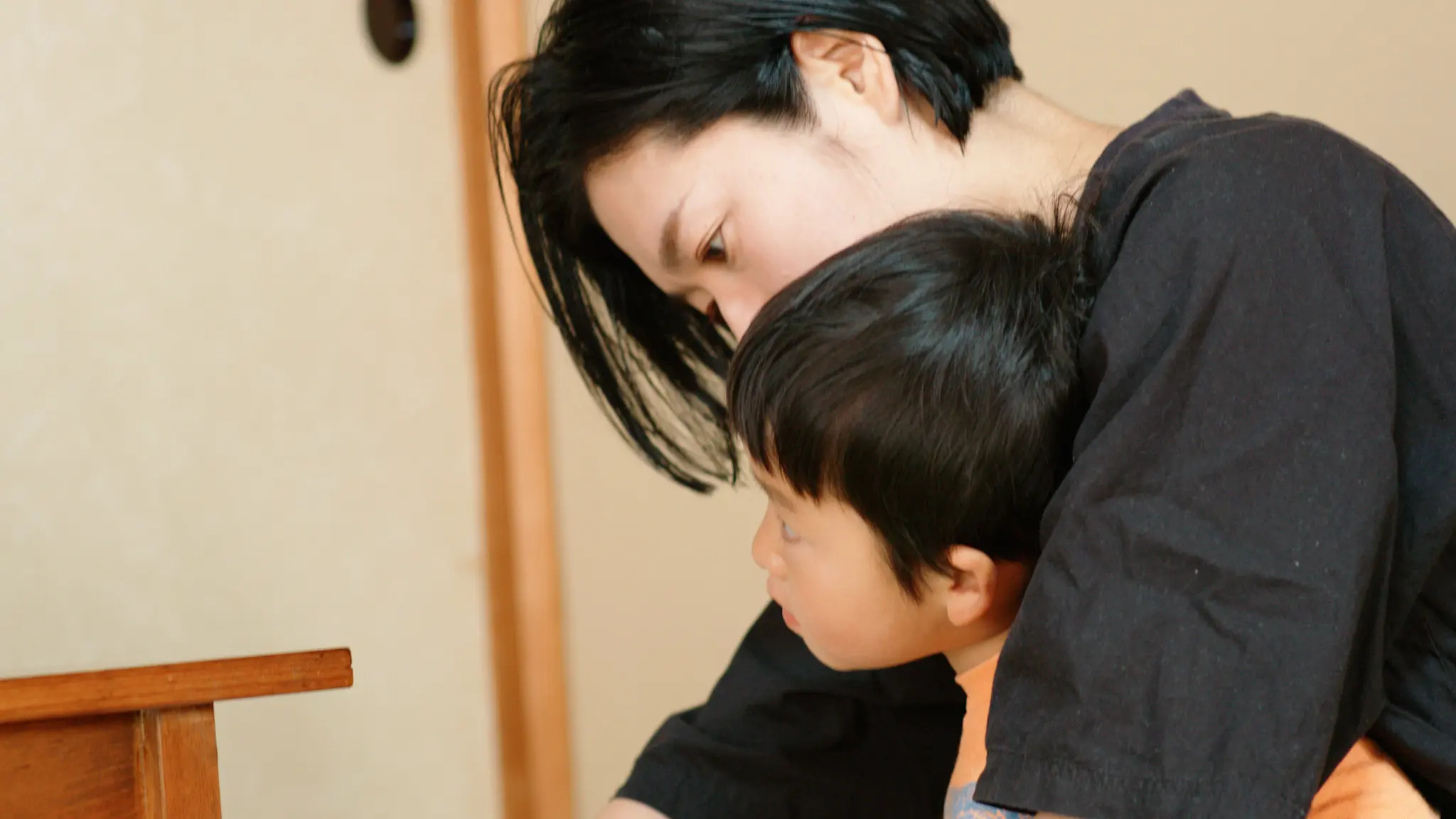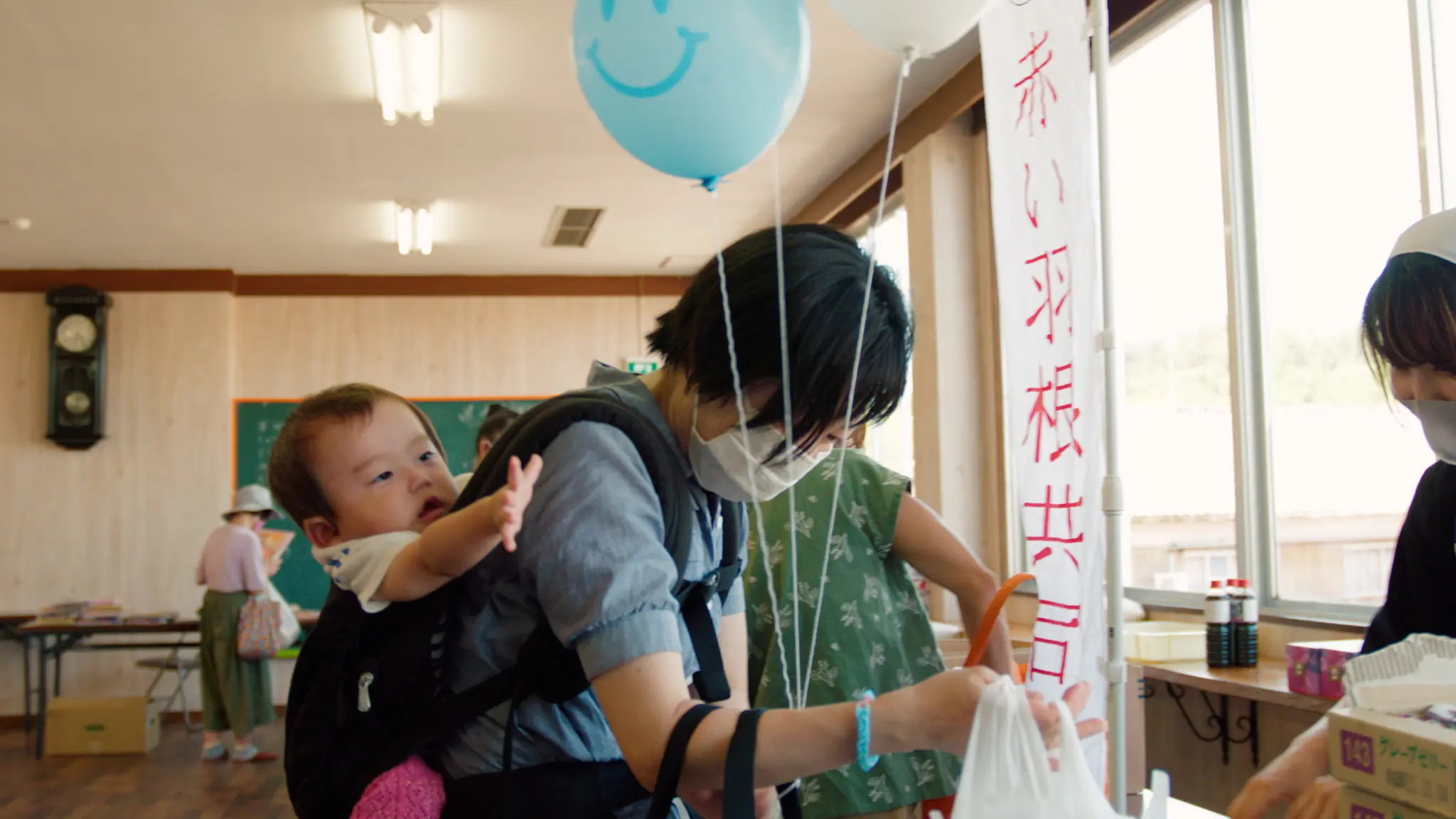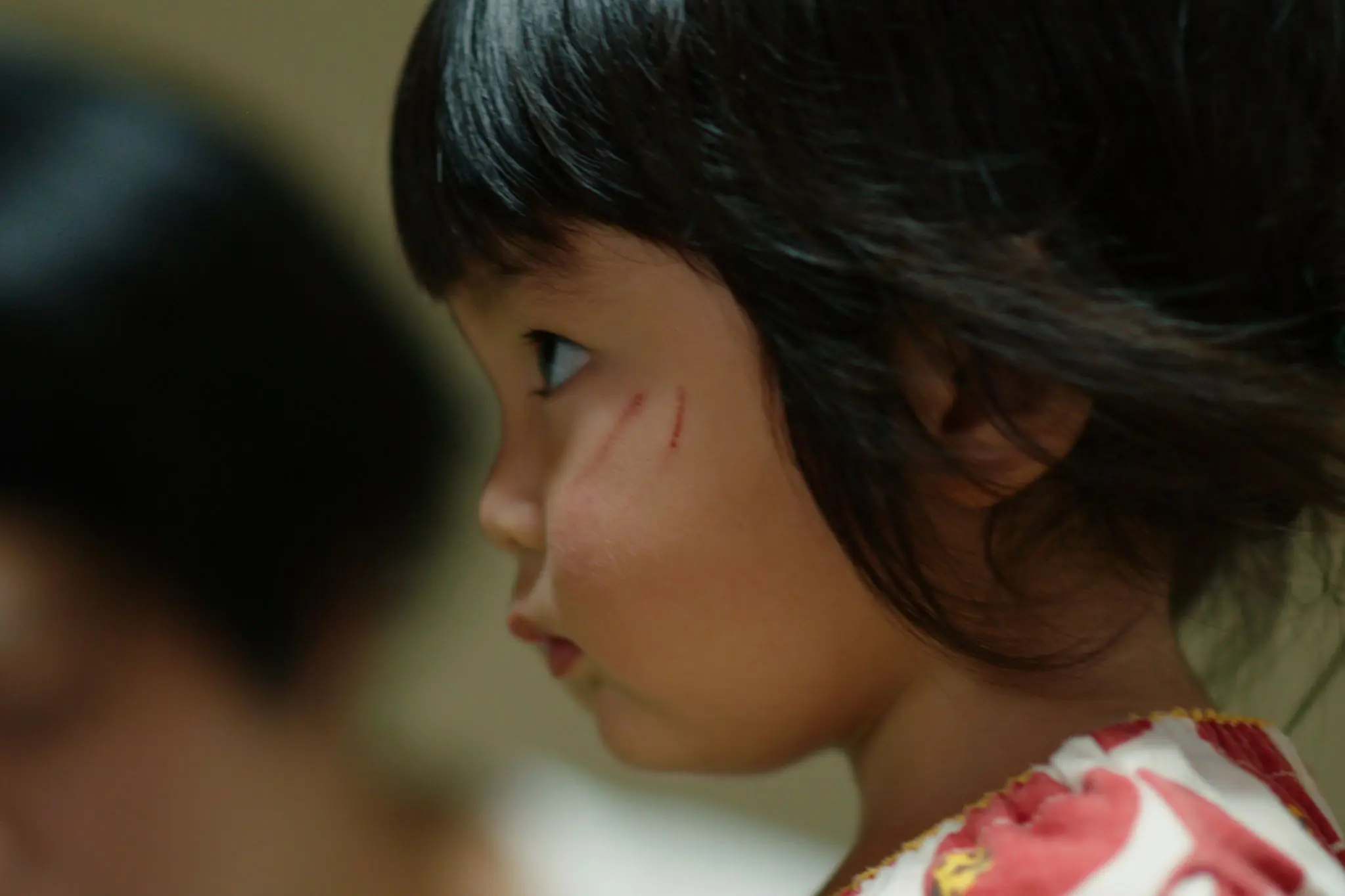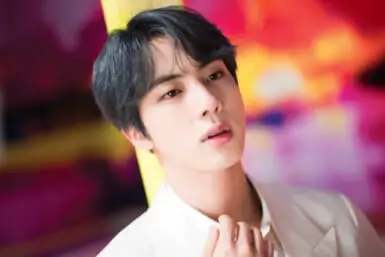Coming from Glasgow in Scotland where food banks are almost commonplace and nearly a quarter of children live in poverty, I was naturally intrigued by Australian filmmaker Rionne McAvoy’s powerful documentary about single mothers in Japan, The Ones Left Behind: The Plight of Single Mothers in Japan. Japan isn’t Scotland, and with the third biggest economy in the world, it comes as a bombshell when the film documents the abject poverty that many Japanese children and single parents live in. Filmed over roughly 18 months, McAvoy, a former pro-wrestler and current director and cameraman for media outlets including NHK and the BBC, is a natural raconteur and when we meet in Shimokitazawa one day in mid-March, he is rightfully forthcoming about the inherent anger involved in this project and the subsequent need to share his film and what it says about modern-day Japan.

McAvoy immediately reminds me of his filmmaking peer and fellow Australian, Adrian Francis, and his recent cinematic tour de force Paper City, which focuses on the almost forgotten Tokyo firebombing of 1945. McAvoy, like Francis, is in no way anti-Japanese, just curious about events and situations which seem to be either under-reported or sidelined here due to societal embarrassment or an undercurrent of shame.
What McAvoy reveals in his film is a series of narratorial boxes in which he opens the situations and realities in which many single parents live in Japan. With access to an impressive number of contributors who each share their story, commentators, including Temple University’s Doctor Jeff Kingston, Doctor Greg Story, noted author Robert Whiting and Professor Yanfei Zhou of Japan Women’s University, it’s a tough watch, but one which ultimately stays with the viewer.
The women featured in The Ones Left Behind: The Plight of Single Mothers in Japan each have their own personal story. Some have been subjected to domestic violence, with one interviewee detailing that her husband, at the time, would only hit her from the neck down to hide the abuse from their families and friends. Others share their stories of working long days without respite and very little pay to pick up kids from school, then come home to do chores and cooking. A routine that lasts for years on end until the children are self-sufficient. McAvoy’s brilliant storytelling also involves the history of postwar Japan, the subsequent destruction and dissipation of communities which in the past were critical for families and parents who would trust neighbors to look after children if they worked.
Some of the soundbites used in the film are brutal and shine a light on Japan’s negligence of many single mothers in the country. “Compared to other countries in Europe, the biggest characteristic of Japanese single mothers is that they are in poverty despite the fact they are working full-time,” says Professor Zhou. “Of the 38 members of OECD (The Organisation for Economic Co-operation and Development) Japan has the highest employment rate among single parent households. 85 percent of single parent households are employed yet roughly 56 percent of these households are in poverty,” comes courtesy of Doctor Story.

When I ask McAvoy about why he began this film he says, “I heard a lot of stories of how hard it is for single mothers here in Japan. They are incredible warriors, battling every day. I can’t imagine being a single mother at the best of times, let alone here in Japan. I don’t think a Japanese person could have made this film as my approach was from outside of the fish bowl. It was always intended for both a domestic and global audience from the beginning. To people outside of Japan, Japan looks like such a technologically advanced and wealthy country, and has a narrative which says there’s no such thing as lower than middle class. But it’s really not. It’s a facade they’ve had for so long. I thought I’d pop the bubble, show what it is like for everyday Japanese here on the ground. Japan isn’t what you think it is.”
Some of the most powerful scenes come when McAvoy films at children’s shokudo, community cafeterias where children can eat for free and parents can pick up groceries to take home. It highlights the shame involved for some mothers, the predicament of many that are forced to live in this way and the absolute negligence of local, regional and national governments. Very similar to food banks we see in Britain and other countries, these community spaces have become essential for many people as a way of surviving. McAvoy says of the children’s shokudo and the parents that utilize their services, “Mostly I saw them trying to be proud, to hide the fact that they’re struggling. There were two kid’s shokudo in the film, one in Tokyo and the other one in Ishikawa Prefecture. It was in Ishikawa where they said that some women can’t afford a ¥3,000 bag of rice at the supermarket but at kindergartens their children can get a daily serving of rice for ¥50. I saw a woman [at the shokudo] with three kids, one child on her back and one in each hand, carrying grocery bags and dumping as much as she could in them.”

Filmmaker Rionne McAvoy
McAvoy details the problems that many single mothers face in Japan when asking for help. Bureaucracy, shame, a lack of voice and, for many, total despair.
“We need to give them voices, we need everyone to hear what they struggle with. We need to have a proper think tank, a forum and a platform to get things out there — surely we can do that? Make single parent information more accessible to these ladies. It’s very daunting for them to go to the city hall because they are asked questions like — ‘what happened to the father?’ and the truth is that less than 20 percent of fathers pay child support in Japan. They are not held accountable by the courts and do not take responsibility for helping to raise their children. Also, for numerous reasons, only one in seven mothers in Japan receive welfare. Reasons for this range from being ashamed to let people know they receive welfare, to be being afraid that their children will be bullied at school if other kids find out. They also simply do not know where to go or how to apply, and they are too busy working low-income, non-regular jobs to apply during city hall hours. Just like with domestic violence victims, there are simply not enough consultation centers. Information is not easily accessible and if they can get this information, it’s often in a language which the mothers do not understand. Information should be easy for the mothers to read and easy for them to understand. The process should be simple.”
McAvoy is optimistic about the future, however. He hopes that his film will be seen by politicians and the general public and for the subject of single mothers and child poverty to be treated in the same way other social issues are being dealt with. Accessibility, giving people a forum, assisting single parents and children in need with compassion and love, this is the way forward and a route that can go a long way to solving this issue once and for all.
Learn more about The Ones Left Behind: The Plight of Single Mothers in Japan.
For more information visit onesleftbehind.com









